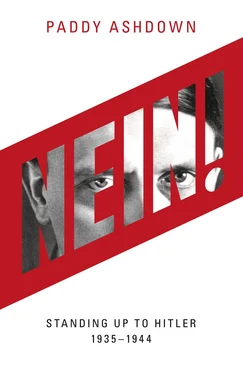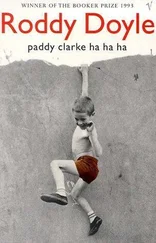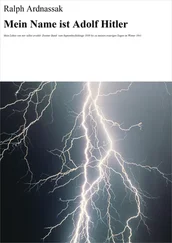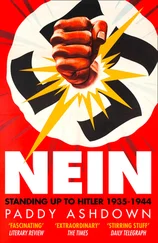Beck was now on territory which was dangerously close to rebellion. Writing to his superior Werner von Fritsch in January 1937, he insisted, ‘All hope is placed in the army. The Wehrmacht will never permit adventure – for able and clever men are its head. Total responsibility rests [on us] for future developments. There is no escaping that.’
It did not take long for Beck to be cruelly disabused of these elaborate niceties.
Hitler’s long-term intentions had for some time been strongly hinted at for those with ears to hear. As early as May 1935, Beck, as chief of staff, had been ordered to start planning for Operation Schulung, an ‘imaginary’ invasion of Czechoslovakia. In the first months of 1937, responding to the mood in Hitler’s Chancellery, Beck began considering how he would implement an order to bring Austria into the German fold.
On 5 November 1937, Hitler finally made plain what had so far only been implied. In a long monologue delivered at a secret meeting with his key military leaders, the chancellor announced that his intention was indeed to go to war with his neighbours: ‘The first German objective … should be to overthrow Austria and Czechoslovakia simultaneously … the descent upon the Czechs [should be carried out] with lightning speed [and might take place] as early as 1938.’ Hitler stressed that he was not predicting a short conflict – his long-term aim, he warned, was to acquire more ‘living space’ ( Lebensraum ) for Germany’s population by 1943.
Any hope that the army would act as Beck’s hoped-for ‘emergency brake’ on what was now plainly revealed as Hitler’s headlong dash to war vanished in the early months of 1938, when the German army suffered a double blow to both its prestige and its power. It began with a carefully engineered ‘scandal’ which on 27 January ended the career of the then minister of war and commander-in-chief, Field Marshal Werner von Blomberg. Eight days later the head of the army, Colonel General Fritsch, the man to whom Beck had written a few weeks earlier asserting that the army would never permit ‘adventure’, was forced to resign because of an alleged, but entirely manufactured, homosexual encounter with a male prostitute in a backstreet close to a Berlin railway station. The army, in which Beck had invested ‘all hope’, stood silently by and uttered not a squeak of protest at these public crucifixions of two of its most respected officers, or at the step-by-step emasculation of its power and position which ensued. On 4 February, Hitler, seeing this weakness, seized direct personal control of Germany’s military machine, declaring, ‘I exercise henceforth immediate command over the entire armed forces.’
Following the Fritsch affair and Hitler’s takeover of the army, whispered talk began to circulate about the possibilities of taking direct action. Carl Goerdeler lobbied some generals to initiate a coup d’état by using the army to seize Gestapo headquarters. But Ludwig Beck had not yet crossed the Rubicon. Asked at a meeting about this time if he had any comment on the recent events, he responded that the question was improper: ‘Mutiny and revolution are words which will not be found in a German soldier’s dictionary.’
Despite all the evidence to the contrary, Beck, still failing to understand the true nature of Hitler’s demonic will, continued to believe that he could divert the coming war by persuasion and legal means.
Again, he was soon proved wrong.
Hitler swiftly consolidated his mastery of the German machine by appointing his most loyal acolyte, Wilhelm Keitel, as chief of the newly created high command of the armed forces, and Joachim von Ribbentrop as his new foreign minister. Then, following the annexation of Austria in March, he convened a secret meeting with his generals on 30 May, and proclaimed: ‘It is my unalterable decision to smash Czechoslovakia by military action in the near future.’
For Beck, this was the last straw. In a minute to his superior, Field Marshal Walther von Brauchitsch, he wrote: ‘The Führer’s remarks demonstrate once again the total insufficiency of the existing military hierarchy at the highest level … If the lever is not applied here soon … the future fate … [of] peace and war and with it the fate of Germany … can only be seen in the blackest colours.’
Now at last Ludwig Beck understood that all attempts to alter Hitler’s ‘unalterable resolve’ were in vain. If war was to be prevented, the time had come, the philosopher general concluded, to pass from protests to the preparation of coups and assassinations.
*The motto is taken from a song of this title that from 1797 to 1945 was played every hour by the bells of Potsdam’s Garrison Church, the burial place of Frederick the Great. The words, by the eighteenth-century poet Ludwig Hölty, were set to the tune of Papageno’s song ‘Ein Mädchen oder Weibchen’ from Mozart’s opera The Magic Flute . The motto became closely associated with Prussian values and the creed of Freemasonry.
Конец ознакомительного фрагмента.
Текст предоставлен ООО «ЛитРес».
Прочитайте эту книгу целиком, купив полную легальную версию на ЛитРес.
Безопасно оплатить книгу можно банковской картой Visa, MasterCard, Maestro, со счета мобильного телефона, с платежного терминала, в салоне МТС или Связной, через PayPal, WebMoney, Яндекс.Деньги, QIWI Кошелек, бонусными картами или другим удобным Вам способом.




![Traudl Junge - Hitler's Last Secretary - A Firsthand Account of Life with Hitler [aka Until the Final Hour]](/books/416681/traudl-junge-hitler-s-last-secretary-a-firsthand-thumb.webp)







